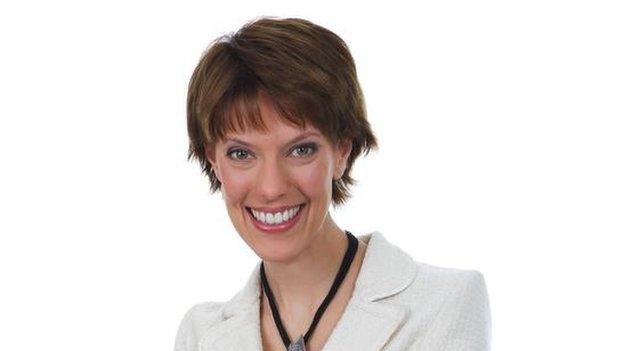Germany seeks new Balkan migrant curbs to halt influx
- Published
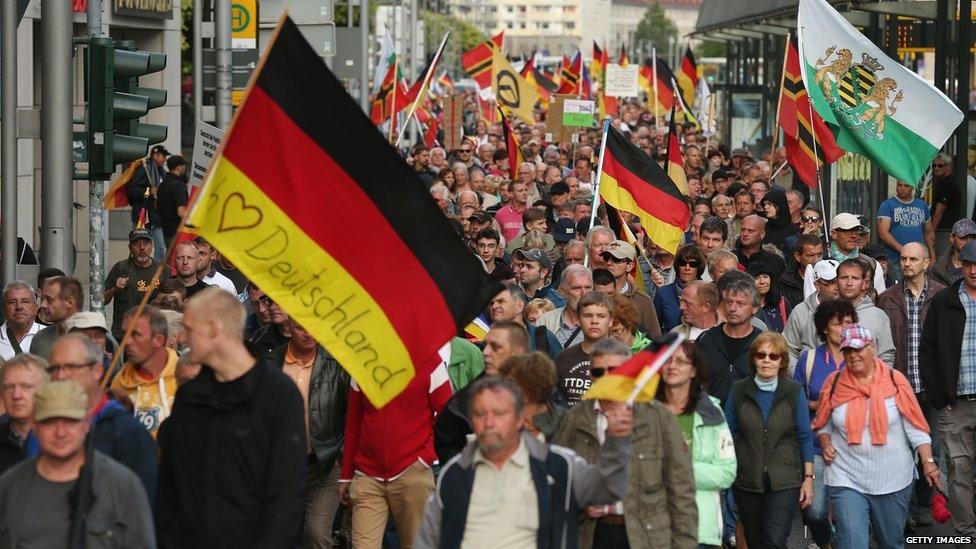
The Pegida movement protested against asylum seekers in Dresden on Monday
German officials are urging action to tackle a surge of asylum seekers from the Balkans, including reintroducing visas and declaring more of the migrants' home countries to be "safe".
Pressure has grown in recent days after attacks on migrant hostels and a huge rise in asylum claims this year.
In a Dresden suburb, the car of Michael Richter, a councillor who had been helping refugees, was blown up.
There are calls now for Albania, Kosovo and Montenegro to be declared "safe".
Since Bosnia-Herzegovina, Macedonia and Serbia were declared "safe" in December, the rise in asylum seekers from those countries was only about 12%, Germany's Federal Office for Migration and Refugees (BAMF) said.
However, the numbers from Albania, Kosovo and Montenegro had soared by more than 500%, the BAMF said.
A "safe" classification makes it easier for the authorities to send back asylum seekers, because it is then harder for the applicants to prove that they are victims of persecution on political, religious or ethnic grounds.
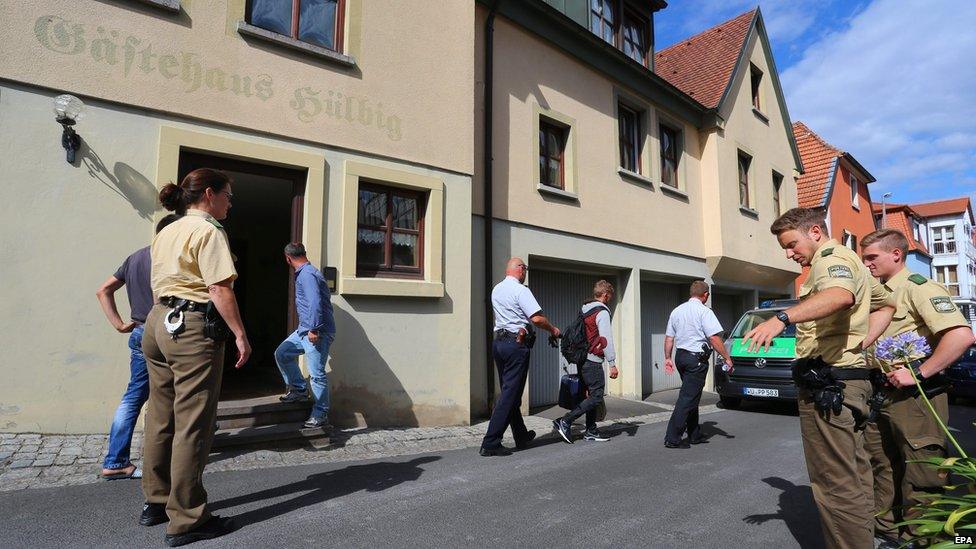
On Monday police escorted migrants out of a threatened hostel in Bavaria
A BAMF spokesperson, quoted by German media,, external said reintroducing a visa requirement could also help stem the influx from the Balkans.
Germany saw a surge in asylum applicants from Bosnia-Herzegovina, Macedonia and Serbia after visa requirements were lifted for those countries, the BAMF reported.
However, most EU countries - including Germany - adhere to the EU's Schengen rules, which allow unrestricted travel in Europe. New visa limits would require a decision at EU level, by qualified majority voting.
The EU removed visas in order to help integrate ex-Yugoslav states - recovering from war - with the rest of Europe.
Hungary is also struggling with a surge in Balkan migrants - many of them Roma (Gypsies) fleeing grinding poverty in Kosovo.
The Balkan migration pressures dominated a special regional summit in Baden-Wuerttemberg state, in south-west Germany, on Monday.
The state's Green prime minister, Winfried Kretschmann, voiced cautious support for the "safe country" proposal - something conservative opposition politicians called for.
Baden-Wuerttemberg has increased the capacity of migrant accommodation to 9,000, to cope with the influx. But the number of asylum seekers is expected to reach 50,000 this year - double last year's figure.
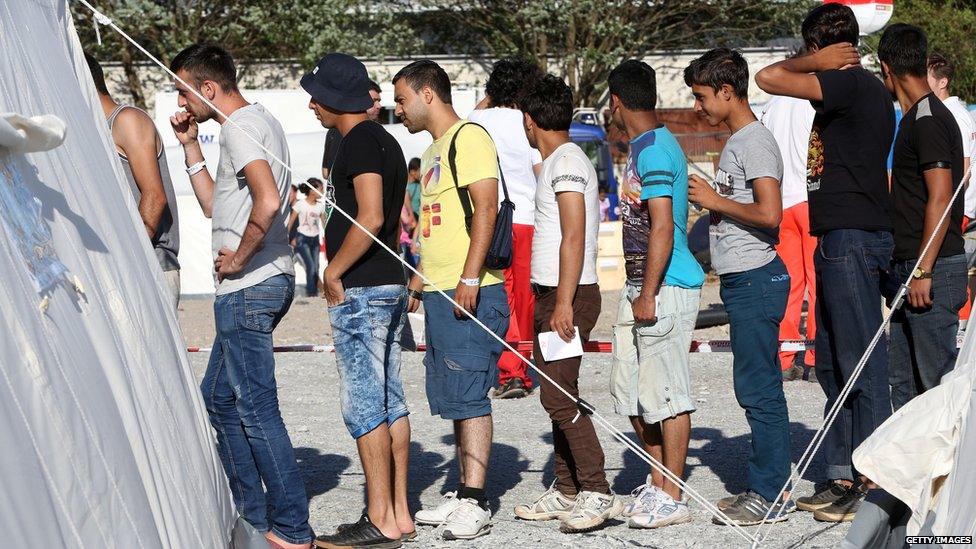
A tented camp for refugees was set up in Dresden last week
Nationally, Germany expects to have about 450,000 asylum applicants this year. In the first half of this year 180,000 asylum claims were registered - double the number for the corresponding period of 2014.
An official estimate, reported by the Tagesschau news website, external, says German spending on asylum seekers will reach at least €5bn (£3.5bn; $5.5bn) this year, up from €2.2bn in 2014.
The Bavarian Prime Minister, Horst Seehofer of the conservative CSU, said the regions "need a massive increase in funds, the federal government has to do significantly more" to handle the burden of asylum seekers.
Meanwhile, the number of attacks on migrant hostels in Germany so far this year - 202 - outstrips the number for the whole of last year (198), the German Interior Ministry reports. Most of the attacks were blamed on far right, anti-immigration militants.
The anti-immigration Pegida movement held a 2,000-strong rally in the eastern city of Dresden on Monday night.
Pegida opposes a temporary refugee centre - a new tent city - set up last week in the city's Friedrichstadt district. In recent days, there have been fights between far-right activists and refugee supporters in Dresden.
In Mainstockheim, Bavaria, 20 refugees were evacuated from a hostel after scuffles broke out with a group of local people.
- Published1 July 2015
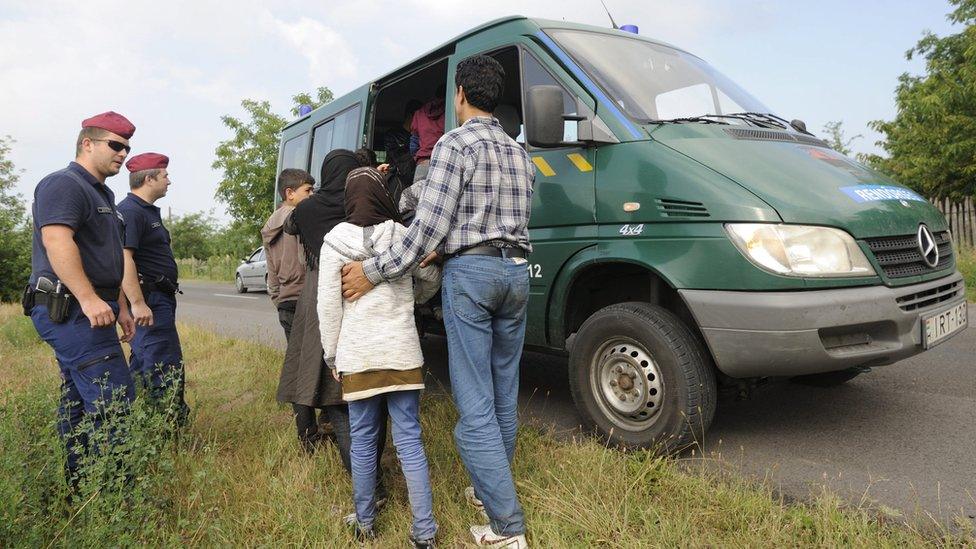
- Published3 March 2016
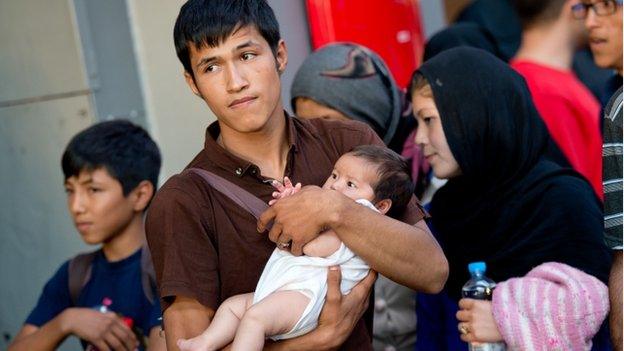
- Published8 March 2015
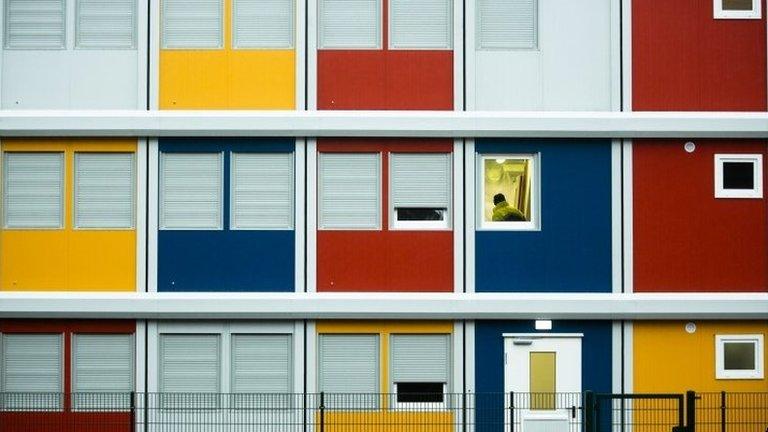
- Published3 November 2014
